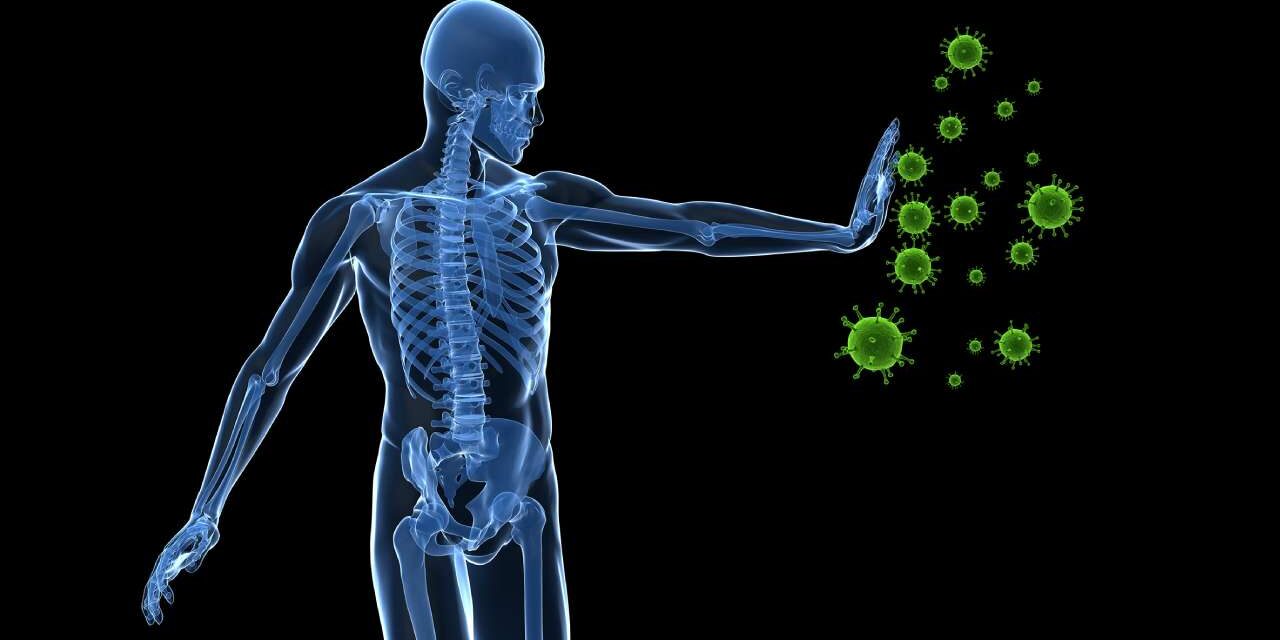Everyone understands inflammation, the body’s Immune System response to stress, illness, and other external factors. People with Gaucher disease may have a higher inflammatory response as their body is constantly working to fight the disease. The good news is you can help your physique become tougher.
Dr. Robin Ely describes the role inflammation plays in the body and how people with Gaucher disease can take steps to strengthen their immune system naturally. Dr. Ely practices consolidative medicine. A discipline that approaches health and wellness by looking at the whole person, including mind, body, and spirit. Formation member of the National Gaucher Foundation (NGF), NGF Clinical Director, and NGF Board of Directors member.
What Is Inflammation?

In short, inflammation is your immune system’s response to many irritants. Your immune system is a complex network:
- Skin is your first line of defense
- Mucous membranes that trap germs and alert your immune system.
- Leukocytes (immune cells)
- The lymphatic system includes lymph nodes and channels that carry immune cells during the circulatory system.
- Bone marrow is everywhere blood cells are made, including various white blood cells (immune cells).
The function of the immune system is to defend other cells. When your body detects an impostor—such as bacteria, viruses, or fungi—it sends out an army of immune cells to hide and destroy the invading organism. When cells rush to the area. They may feel tender and warm and appear red or swollen. We call these sensations and changes in appearance “puffiness.”
What Causes Inflammation in the Body?
The immune system controls the inflammatory process. “We cannot live without inflammation,” said the doctor. Eli explained. “If you cut it, there’s an inflammatory response that directs white blood cells to the area and sends growth factors to both sides of the skin so it can grow back.”
In an ideal situation, the immune system detects and responds appropriately to foreign or internal microbes or abnormal tissue. Doing so maintains the body in homeostasis or stability. Problems arise when the immune system is overcharged or underactive.
“Inflammation is the body’s tool for restoring homeostatic balance after some kind of injury,” says Dr. – Eli. “The answer may be similar to Goldick’s story: not enough, too much, or right.”
Examples of under-reaction or overreaction include:
A very small infection leads to a widespread disease that the body cannot fight. Nobody likes a fever, but a fever can help you get better. A higher body temperature helps your immune cells travel faster to the site of injury or infection. This is why applying heat externally—such as hot packs, heating pads, or saunas—can help people recover. Adding artificial heat can help stimulate the immune system and eliminate inflammation. Cancer is an example of immune system interactivity. Where the immune system does not recognize a
nd destroy cells that are not functioning properly.Many infections can cause your body to attack itself. For example, excessive inflammation causes autoimmune diseases, such as arthritis, colitis, Crohn’s disease, lupus. And many others. In these cases, the cells attack and destroy normally functioning cells like invaders.
How Does Gaucher Disease Affect Inflammation?

Many people today have an unbalanced immune system. The modern lifestyle comes with many stresses, including the food we eat, lack of sleep, technology addiction, information overload, lack of exercise, and lack of time spent outdoors in nature.
People with Gaucher disease may have an overactive immune system response (hypersensitivity). This can happen even if Gaucher’s disease has been successfully treated.
Researchers have identified “a critical role for inflammation in Gaucher disease,” according to a paper published in Gaucher Disease News last year. Abnormal immune responses can cause specific symptoms, such as chronic joint pain due to excess immune cells, cytokines (chemical mediators of immunity), and antibodies attacking the body’s cells.
Neuroinflammation plays a vital role in the growth of Parkinson’s syndrome. People with Gaucher disease and people who carry the GBA gene have a slightly increased risk of developing Parkinson’s disease. Dr. Ely notes, “These processes are controlled by genetics (the code of your DNA) and epigenetics.”
The good news is that people can take steps to reduce or stabilize levels of inflammation in the body through epigenetic changes, which are changes in the outside and inside factors that affect the immune system.
The Role of the Endocannabinoid System
Last month’s page on the importance of self-care for people with Gaucher disease discussed the autonomic nervous system (ANS). The ANS controls body functions such as digestion, heart rate, and breathing.
Another body system, the endocannabinoid system (ECS), is a regulatory system for the entire body. If ECS is new to you, you are not alone. Scientists discovered it around 1990. Experts believe the ECS controls and interacts with all other body systems, including the immune system. This core network connects all the signaling systems throughout the body.
“Some of these inflammatory diseases may be related to the endocannabinoid system,” the doctor said. Eli. “Ultimately, everything is connected. The question is, where do you go into the system to try to change it?
How to Reduce Inflammation in the Body Through Diet and Exercise
If your goal is to control or reduce inflammation, any self-care techniques discussed in last month’s blog may help. Dr. Ely offers four ways to naturally strengthen your immune system and help your body regain or maintain balance.
Research has shown that changes in diet, exercise, breathing patterns, meditation, and prayer lead to positive changes in the body. “It is very important to be aware and understand how your body feels,” says the doctor. Eli notes.
1. Practice mindfulness and meditation
Body and mind are connected. Daily meditation can be an essential part of helping the body’s systems relax, recover, and establish homeostasis. Research has shown that even meditation practice can help people:
- Reduce stress
- Control anxiety
- Improve attention span and memory
- Sleep better
- Decrease blood pressure
According to the doctor, this reaction can mediate physiological responses such as increased blood pressure. Ely explains that high blood pressure “is an indirect response through inflammatory and autonomic mechanisms. When the sympathetic nervous system is overactive, the circulatory system responds by constricting blood vessels. Relaxation techniques and meditation increase parasympathetic tone and reduce excessive sympathetic tone so blood vessels open to the desired internal diameter.”
To do the simplest form of thinking:
- Sit relaxed on a chair or cushion on the floor.
- Close eyes.
- Inhale and exhale slowly.
- Pay attention to your thoughts as they come and go. When you start to get attached to an idea, take a breath.
- Continue for five, 10, or 20 minutes.
Other meditation options are:
Apps like Insight Timer offer guided meditations, many of which are free.
Moving or walking meditation is a form of meditation that involves reframing your thoughts while moving and breathing.
Devices like biofeedback headbands measure brain waves and provide feedback (e.g., Moses and Fisher Wallace).
2. Exercise for strength and flexibility
Dr.- Eli noted that a little daily exercise and movement is good for everyone. “Research has shown that any exercise is beneficial. When done in moderation, exercise effectively reduces inflammation throughout the body and the brain.”
The following exercises are worth accumulation to your everyday routine:
- Walking or cycling allows you to get outside (or stay home with your equipment).
- Yoga can stretch, strengthen, and expand the mind.
- Pilates is specifically designed to strengthen the core and move the entire body.
- Qigong and tai chi use gentle movements to create balance, stability, and internal energy reserves.
- Swimming and jogging reduce the effects of negative gravity in people with bone and bone problems associated with Gaucher disease.
Exercising too much or too hard can reduce your immune response. If you get a cold virus after working hard or for a long time, your immune system cannot mount an adequate inflammatory response.
“Exercise provides an opportunity to force yourself to tolerate some discomfort and develop patience.” Dr. Ely recommends this. “We must exercise to grow, learn, and strengthen our immune system. Exercise creates the stress the body needs to stay in good shape. Restore flexibility.
Before starting any new exercise regimen, talk with your doctor to certify your unique health needs are considered.
3. Eat a natural diet to care for a healthy immune system
A natural diet containing as many whole foods as possible is the best diet for reducing inflammation. Processed foods containing trans fats and white sugar increase inflammation.
Certain foods may support a regulated inflammatory response:
- Oily fish such as salmon, anchovies, and sards.
- Seeds (chia, flax, hemp, sunflower, pumpkin)
- Pasture-raised eggs
- Nuts (walnuts, macadamia and almonds)
- Dark chocolate
- Black or green tea
- Coffee, medium
- Herbs and flavors, especially black pepper, turmeric, cinnamon, garlic, and oregano.
4. Explore energy-oriented techniques
“Quantum, ancient, and modern healing practices view the body through an energetic lens,” the doctor said. Eli. “This omnipresent energy is called qi (pronounced “chee”), ki, prana, or the bioenergetic field, among other things.”
Global cultures include many different rituals to help create and maintain this omnipresent energy. Massage, acupuncture, and acupressure are techniques designed to restore stagnant energy and balance the body’s energy flow. There are also practices you can do independently to develop and manage your energy. As mentioned above, this includes tai chi, qigong, yoga, and sensual dance forms.
Learning these techniques, with the assistance of your Gaucher specialist if necessary, can provide helpful, enjoyable, and rewarding ways to support your well-being and overall health.





